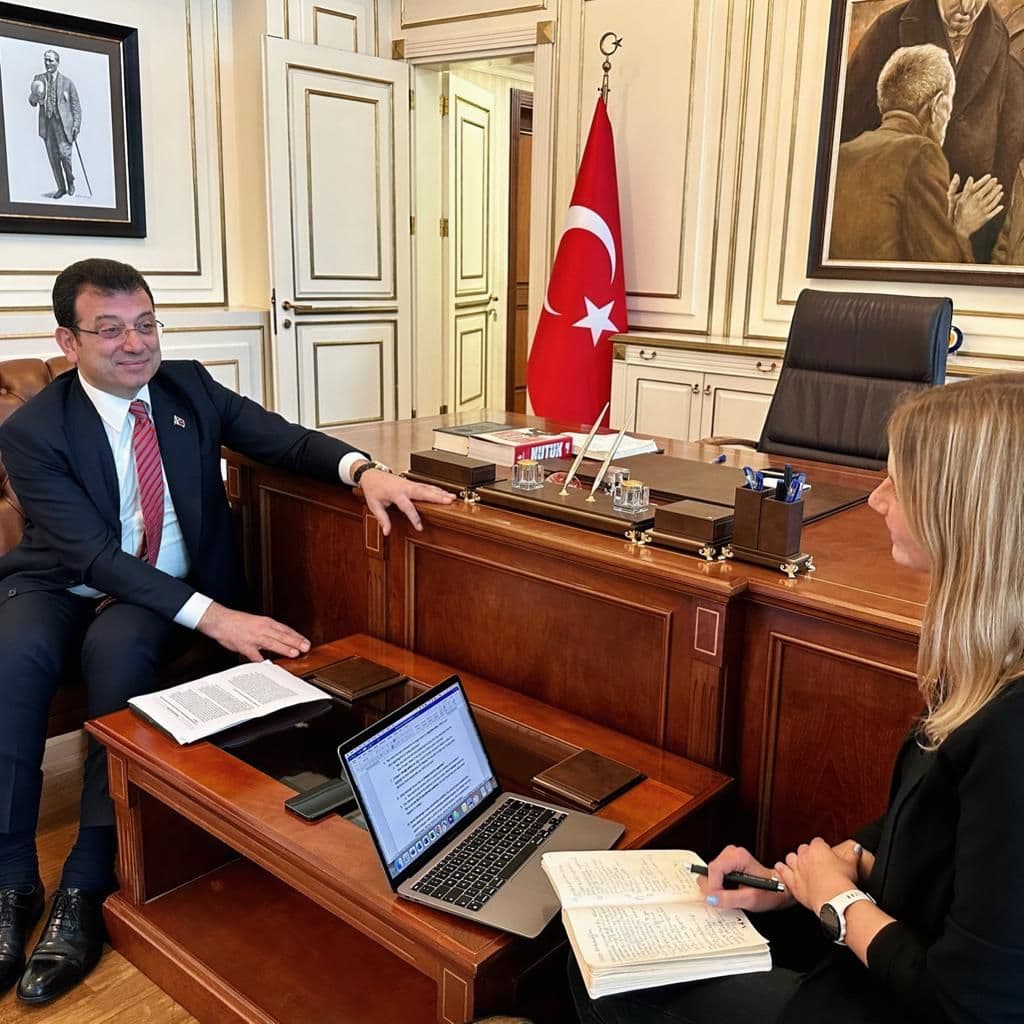Erdogan's last battle for power. Who is the Turkish president, how did he come to power and what are his chances to win the elections again?
English Section
09/05/2023
For many, he is an autocrat, but his fans see him as Turkey's saviour.
In the course of his 20 years in power, Recep Tayyip Erdogan went from being a beacon of hope to a divider.
He has always held all the strings - until now. Can he defend his power once more?
When Recep Tayyip Erdogan came to power in Turkey 20 years ago, a boy from the football field had made it to the top against all odds. Outside the Istanbul polling station where he cast his vote at the time, his supporters cheered him on. They saw Erdogan as one of them.
Today, the president has passed the zenith of his power. In the elections in mid-May, he is running as a candidate for the last time - for the first time not being the clear favourite.
Who is the man who has shaped Turkey's destiny like no other since the state's founder Kemal Atatürk?
Chapter 1: A boy from the bottom
Steep serpentines lead into Recep Tayyip Erdogan's past. At the end of the road rises a modest property with unplastered bricks.
This house in Rize province on Turkey's Black Sea coast was once the home of Erdogan's deceased father.
Ismet Erdogan takes a seat on a colourfully patterned sofa. He is the nephew of Turkey's most powerful man. Ismet's grandfather, Captain Ahmet Erdogan, is the father of the current president. Ismet's remaining hair is greying, he and Recep Tayyip are about the same age.
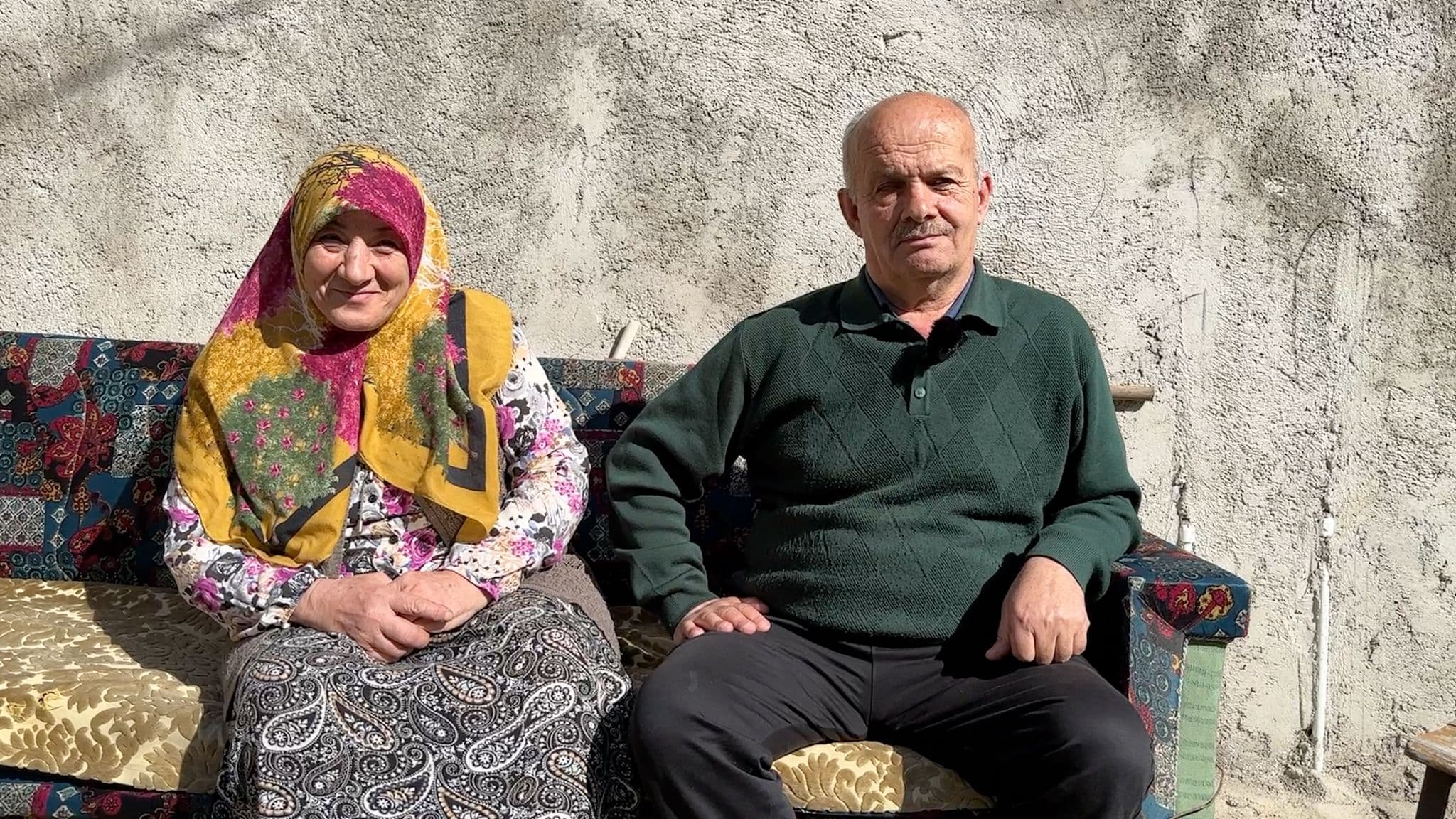
Ismet and Meryem Erdogan - grandson of the President of Turkey and his wife. Photo: Carolina Drüten
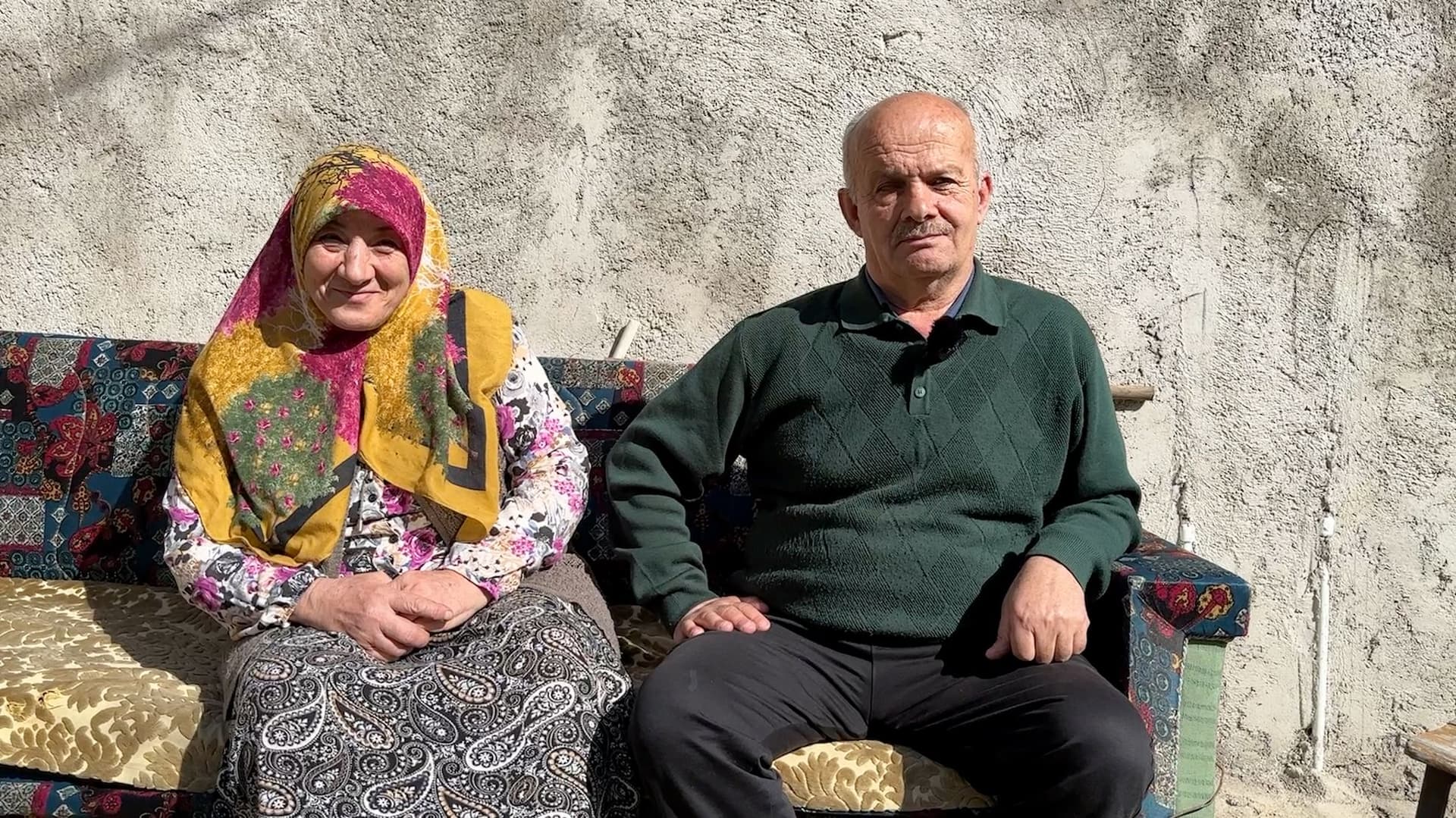
Ismet and Meryem Erdogan - grandson of the President of Turkey and his wife. Photo: Carolina Drüten
Mulți ne citesc, puțini ne susțin. Fără ajutorul tău, nu putem continua să scriem astfel de articole. Cu doar 5 euro pe lună ne poți ajuta mai mult decât crezi și poți face diferența chiar acum!
The latter was born in the 1950s from Captain Ahmet's second marriage, while Ismet's father was from his first marriage. Although the current president grew up in Istanbul, his family always spent their summers here. It is a conservative area, marked by tradition and religion. Recep Tayyip was also a pious child. "At 13, 14, he performed the ritual ablution and his prayer every morning," Ismet remembers.
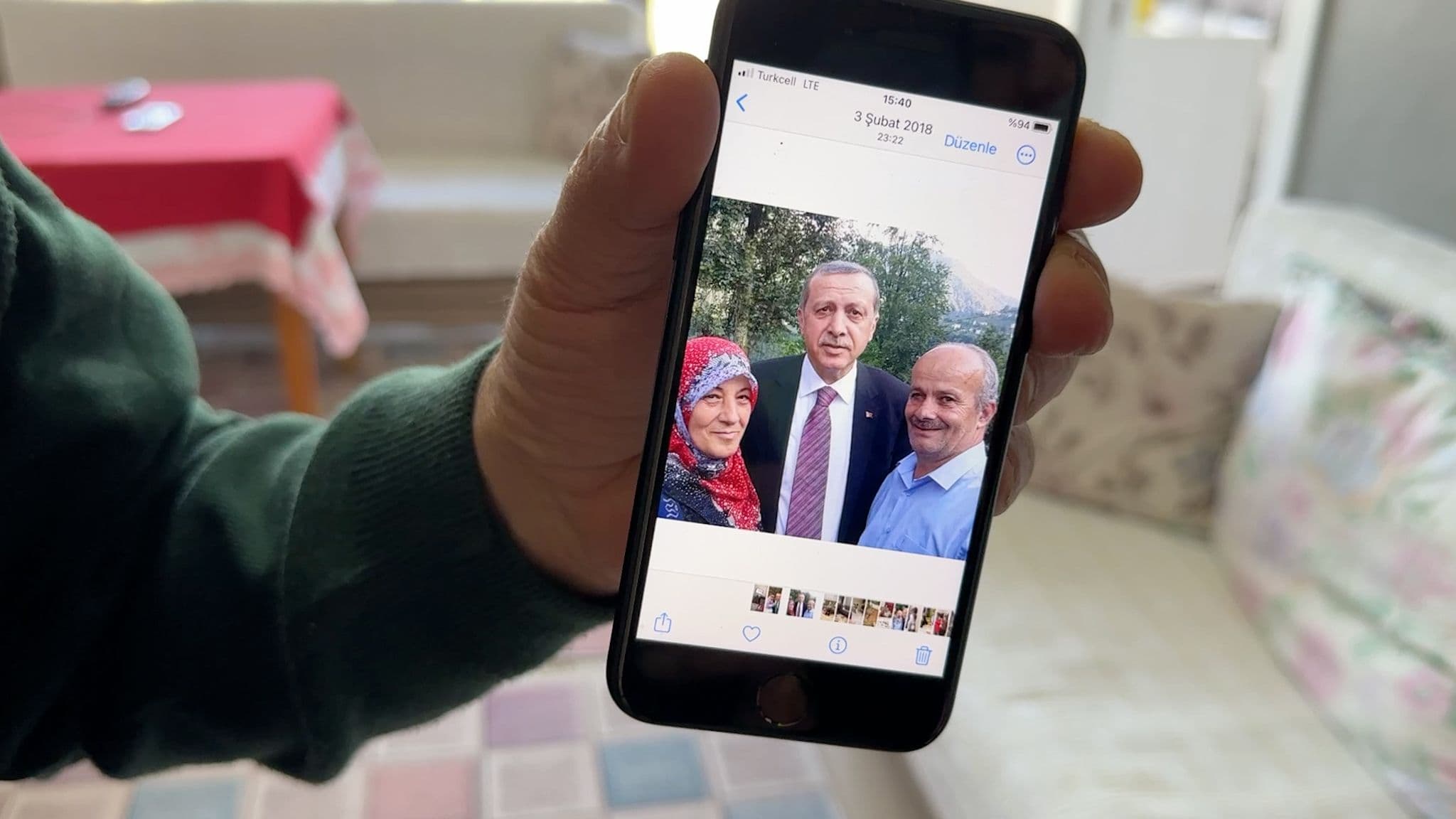
Ismet and Meryem Erdogan with the President. Photo: Carolina Drüten
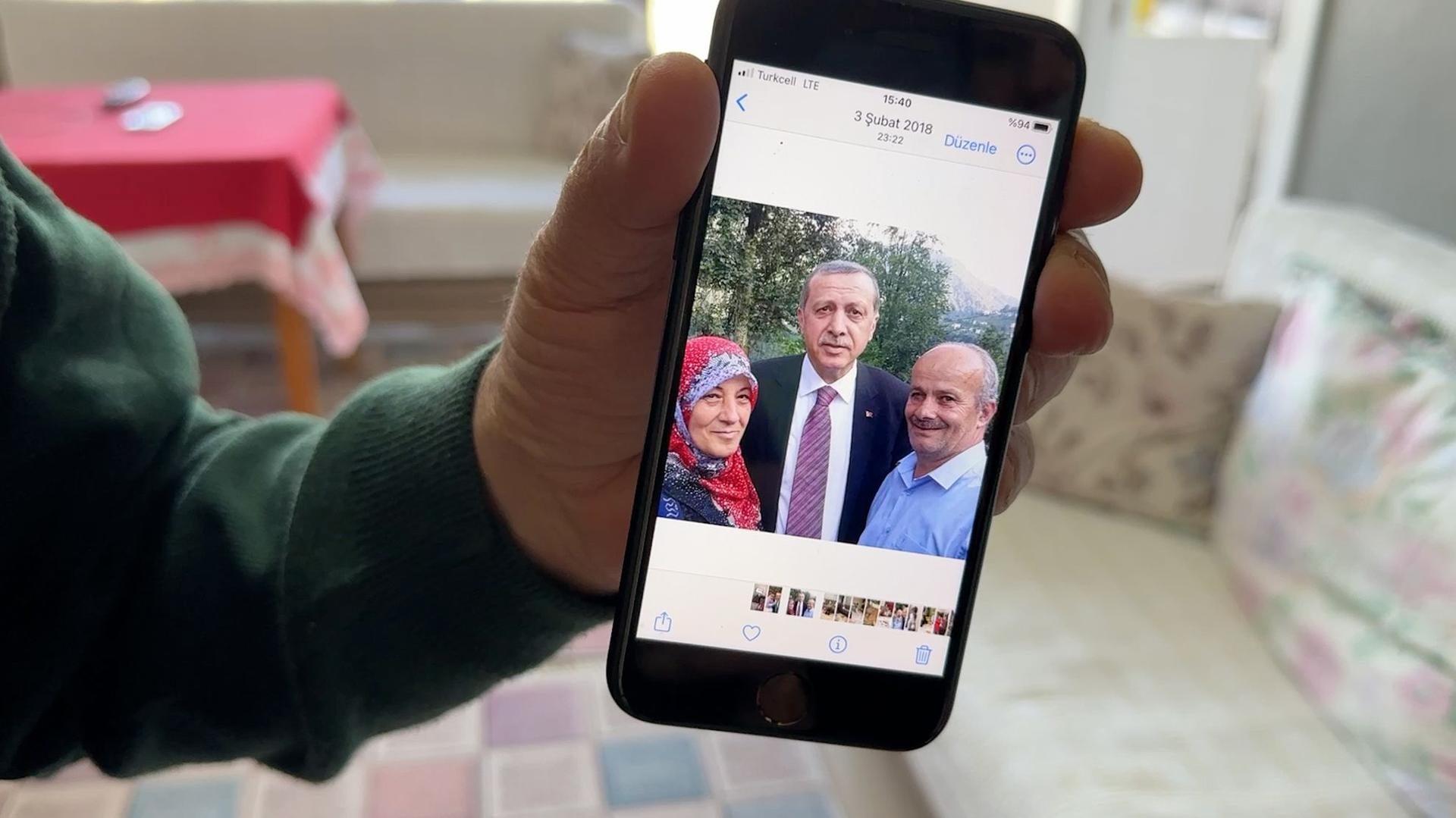
Ismet and Meryem Erdogan with the President. Photo: Carolina Drüten
The 71-year-old had an embroidery made of a photo showing him and his wife with the president. It hangs in the living room above the television, which is showing a football match between two Istanbul clubs. Ismet calls his uncle "Reis", the leader, as many of his supporters do.
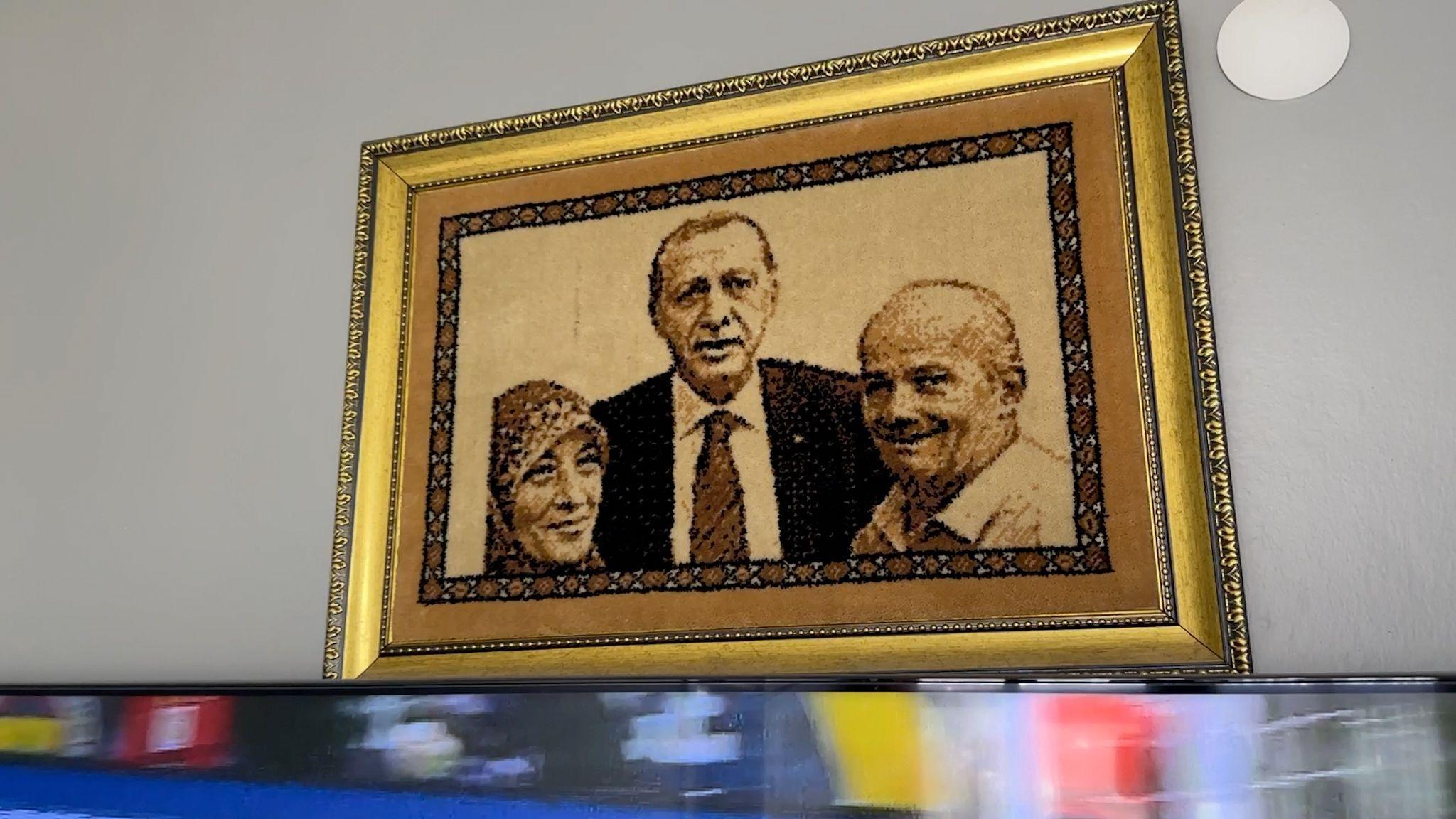
The photo of the President was turned into embroidery. Photo: Carolina Drüten
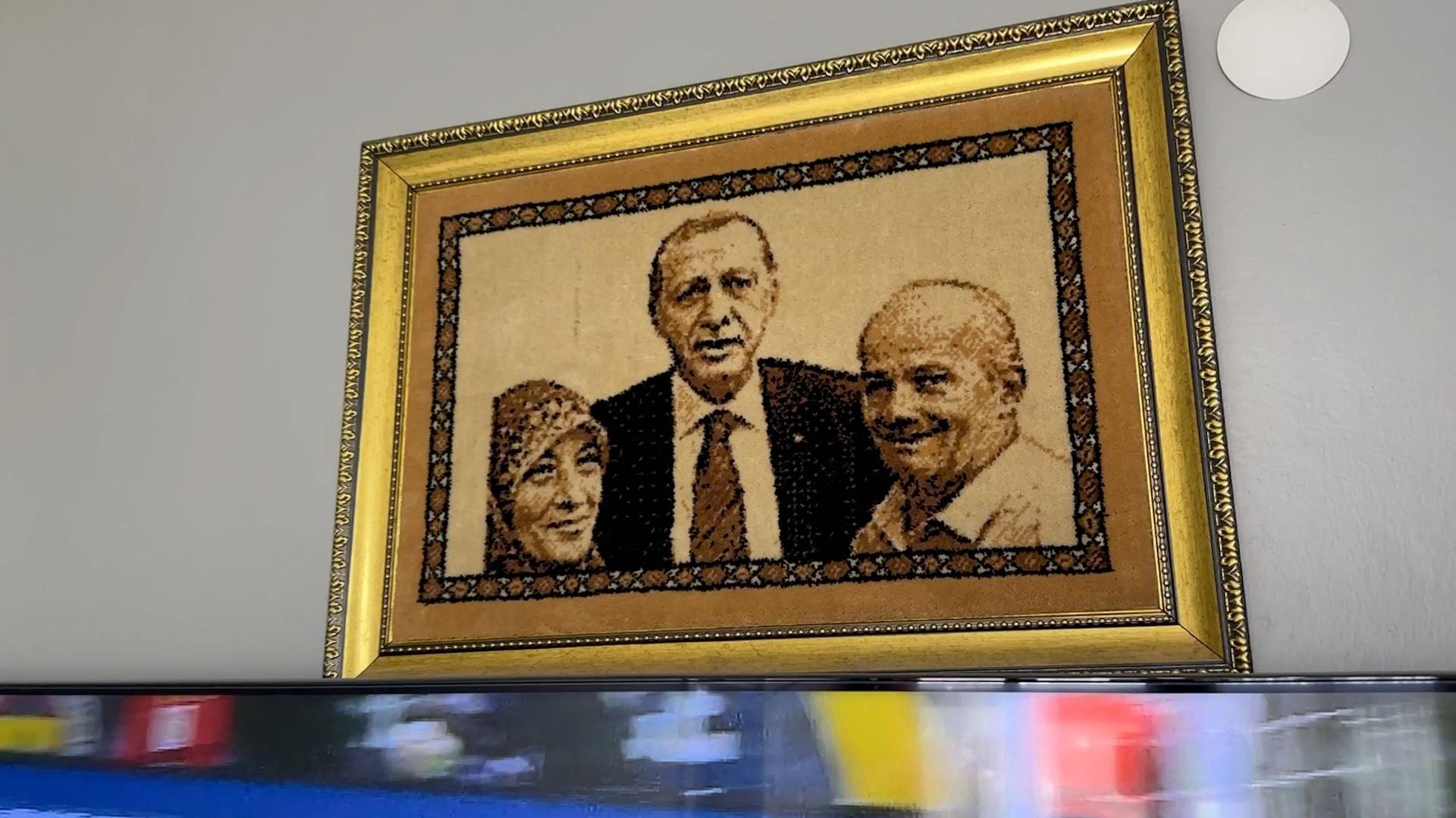
The photo of the President was turned into embroidery. Photo: Carolina Drüten
To understand the Erdogan phenomenon, one needs both: his family roots in Rize, the rural tradition, religion. And Kasimpasa, Istanbul's old harbour district, where the current president grew up and was involved in scuffles. To supplement his pocket money, he sold Turkish sesame bagels and water. His life consisted of the Koran school and the football field.
Romania has over 250 million euros available for flood risk reduction, but authorities have not submitted any projects
Both climate change and the lack of long-term intervention by the state contributed to the scale of the flooding in Covasna and Harghita, according to experts consulted by PressOne. Romania has more than €250 million in European funds available for this purpose. The money has already been allocated, but the authorities have not yet submitted any projects.
Why Romania is watching NATO’s Baltic experiment closely
In the Baltic Sea, NATO is testing drones, sensors, and AI to detect attacks on pipelines and data cables at an early stage. The exercise is not just a technical innovation – it also represents a major strategic shift that is set to be formally adopted at the summit in The Hague. It will have significant implications for the Black Sea.
Perhaps everything would have been different if his strict father had not forbidden him to pursue a football career. "He was a great player," Ismet Erdogan recounts, "but my grandfather wouldn't let him. He would say, 'Son, did I work so hard to send you to school or for you to play football?'"
Recep Tayyip Erdogan turned to politics.
The move would change his life - and determine Turkey's fate for decades to come.
As a young man, he joined an Islamist party and surprisingly won election as Istanbul's mayor in the 90s. Erdogan governed efficiently, modernising parts of the ailing infrastructure. At the same time, he banned the serving of alcohol in public places. Being both secular and Muslim, he said at a press conference, was not possible.
Un newsletter pentru cititori curioși și inteligenți.
Sunt curios
As an advocate of political Islam, he was in conflict with the strictly secular order that Atatürk had given Turkey. Women wearing headscarves were forbidden to attend university at that time; Erdogan sent his daughters abroad to study. The Turkish elite was urban, not very religious, modern - and sometimes looked down on the traditional Anatolian population. As mayor, Erdogan recited a poem: "The minarets are our bayonets, the domes our helmets, the mosques our barracks and the believers our army." A court saw this as incitement of the people and sentenced him to prison.
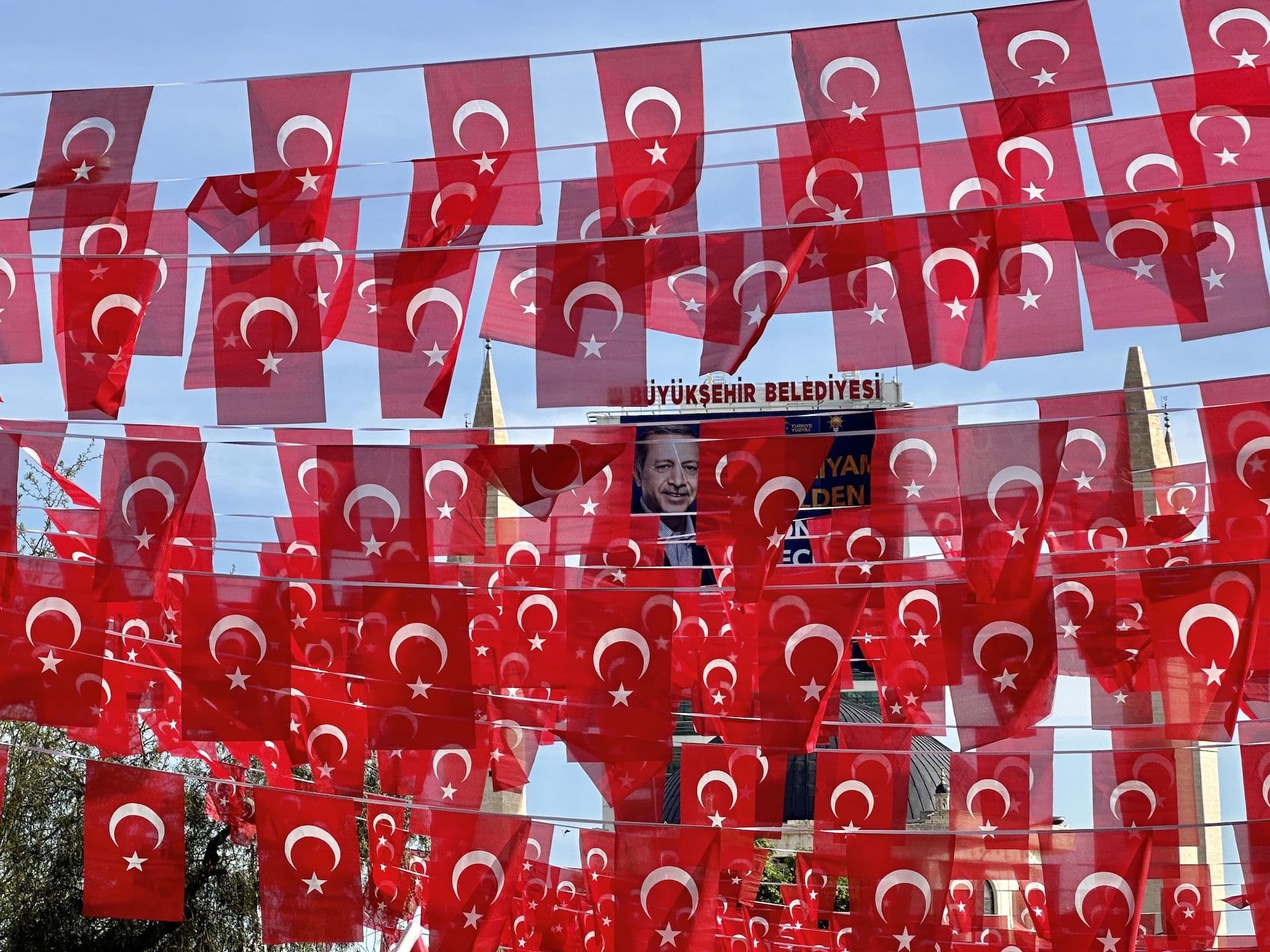
Erdogan, popular și în Sanliurfa. Foto: Carolina Drüten
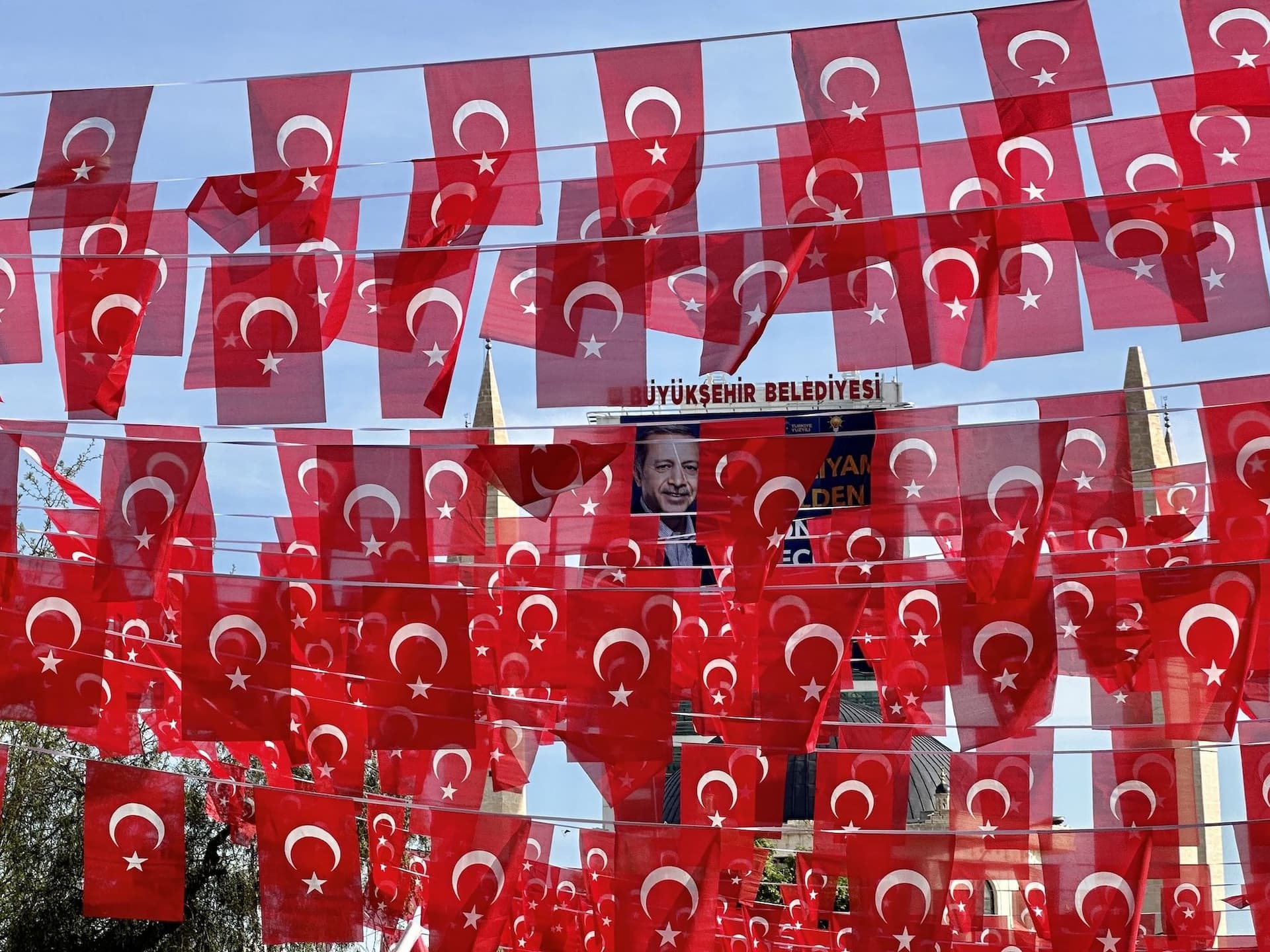
Erdogan, popular și în Sanliurfa. Foto: Carolina Drüten
Erdogan went to prison as an Islamist and came out, it seemed, four months later as a reformed man. He had realised that a strictly Islamic party was neither capable of gaining a majority nor compatible with the state apparatus, and founded the modern-looking Justice and Development Party, or AKP for short, with a few companions. It stood for Muslim values without advertising a religious programme. In the 2002 parliamentary elections, the centre-right party won more than a third of the votes. Turkey's neglected conservative majority had given Erdogan the victory. Golden years followed.
As prime minister, Erdogan abolished the death penalty, strengthened the fight against torture, promoted the use of the Kurdish language, introduced universal health insurance, had bridges, roads and airports built. A Turkish middle class emerged.
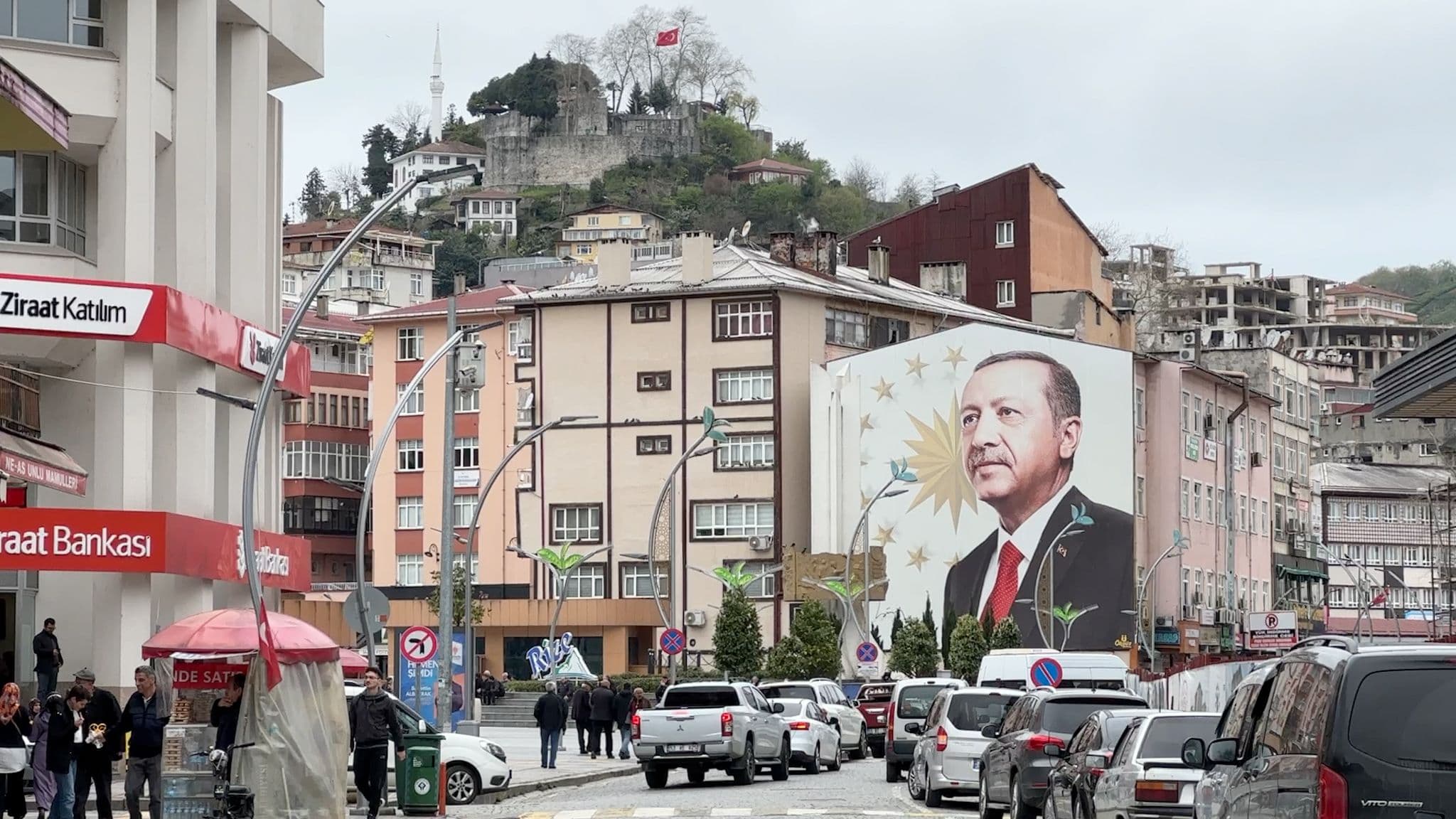
Erdogan, on the facade of a building in Rize, in his family's home province. Photo: Carolina Drüten
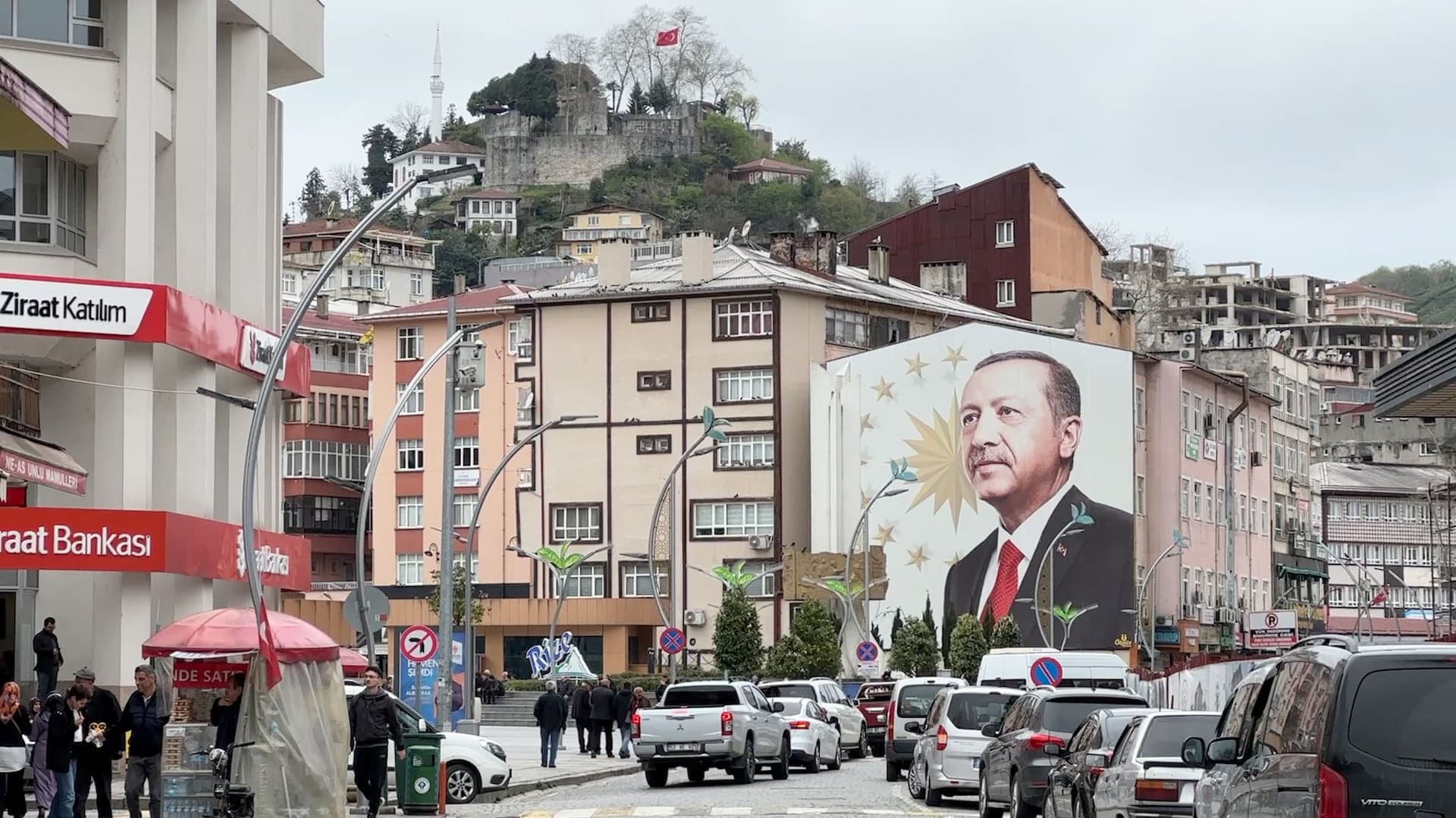
Erdogan, on the facade of a building in Rize, in his family's home province. Photo: Carolina Drüten
In 2004, the then German Chancellor Gerhard Schröder presented Erdogan with a European of the Year award and praised him as a "great reformist politician". Shortly afterwards, Brussels and Ankara officially opened EU accession negotiations. Erdogan was seen by many as proof that both are possible: Islam and democracy, tradition and reform. His critics, however, warned: The tendency towards authoritarianism was inherent in Erdogan's biography. They were to be proved right.
Chapter 2: A man against his people, a man against the world
Gezi Park in the centre of Istanbul is an unremarkable green space. In May 2013, a few dozen environmental activists camped there. Bulldozers had moved in to clear the trees and prepare the site for the construction of a replica Ottoman barracks.
Erdogan had personally pushed the project.
The fact that demonstrators stood in his way was a thorn in his side.
Police officers sprayed tear gas and set fire to the tents. Many people in Turkey were outraged by the disproportionate reaction. On social networks, the call "occupy Gezi" circulated. What had started as a rescue operation of a few trees was now directed against the government. The protests spread like wildfire across the country.
Documentary filmmaker Sibel Tekin followed the call in the capital Ankara. Demonstrators had gathered in the city centre. Some had beer with them, alluding to the fact that Erdogan had called the founder of the Turkish state Atatürk and his prime minister Ismet Inönü "two drunks".
Tekin, then in her mid-30s, pressed the record button on her camera. She came back the next day. When the policemen started firing tear gas canisters, Tekin put on a skateboard helmet and a surgical mask. Within three months, over three and a half million people took to the streets in Turkey. Erdogan had the movement brutally crushed. Thousands were injured, thousands arrested, several died. His response to the Gezi protests unmasked Erdogan internationally. The reformer turned out to be an autocrat.
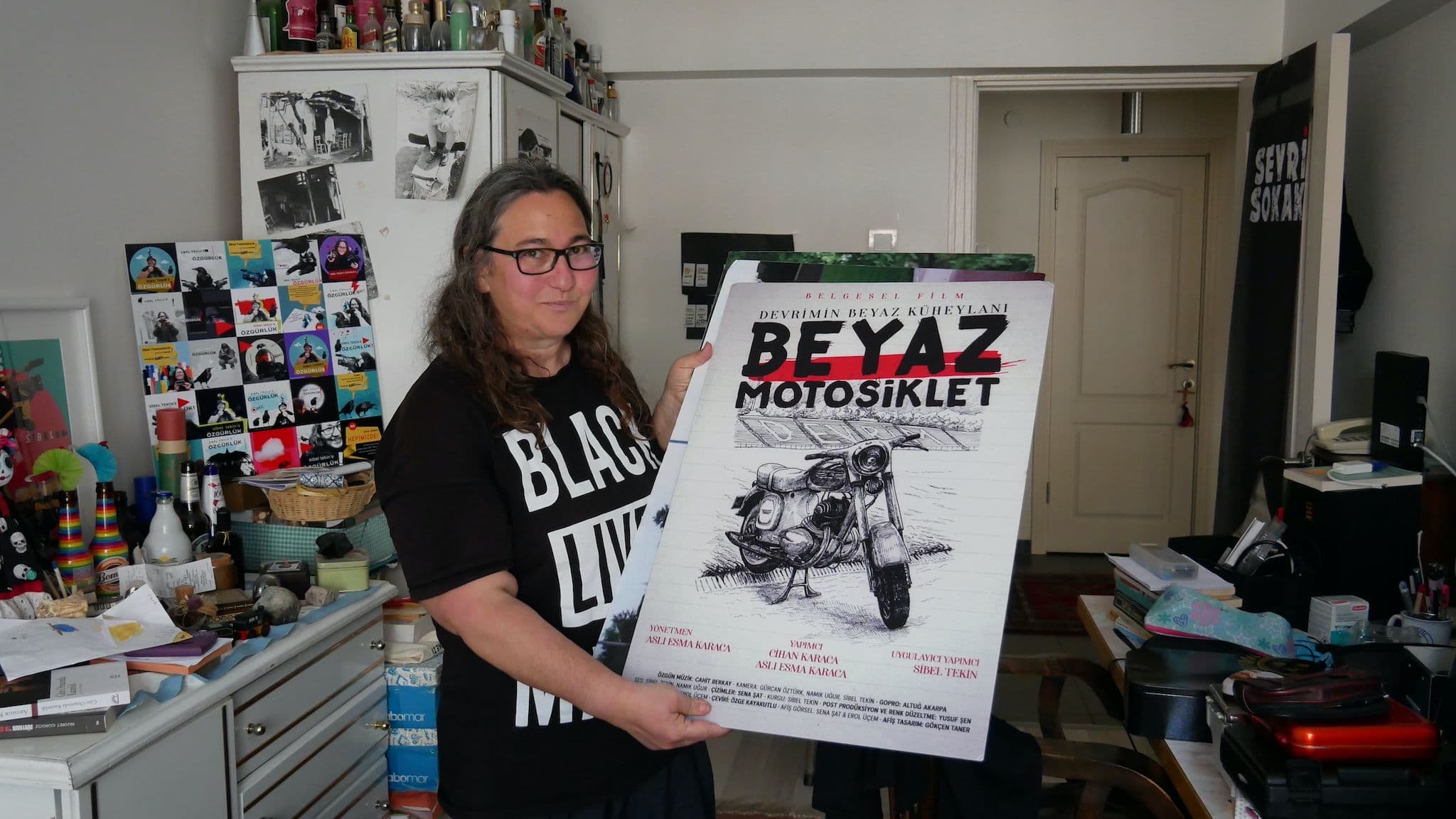
Documentary filmmaker Sibel Tekin in her apartment in Ankara. Photo: Carolina Drüten
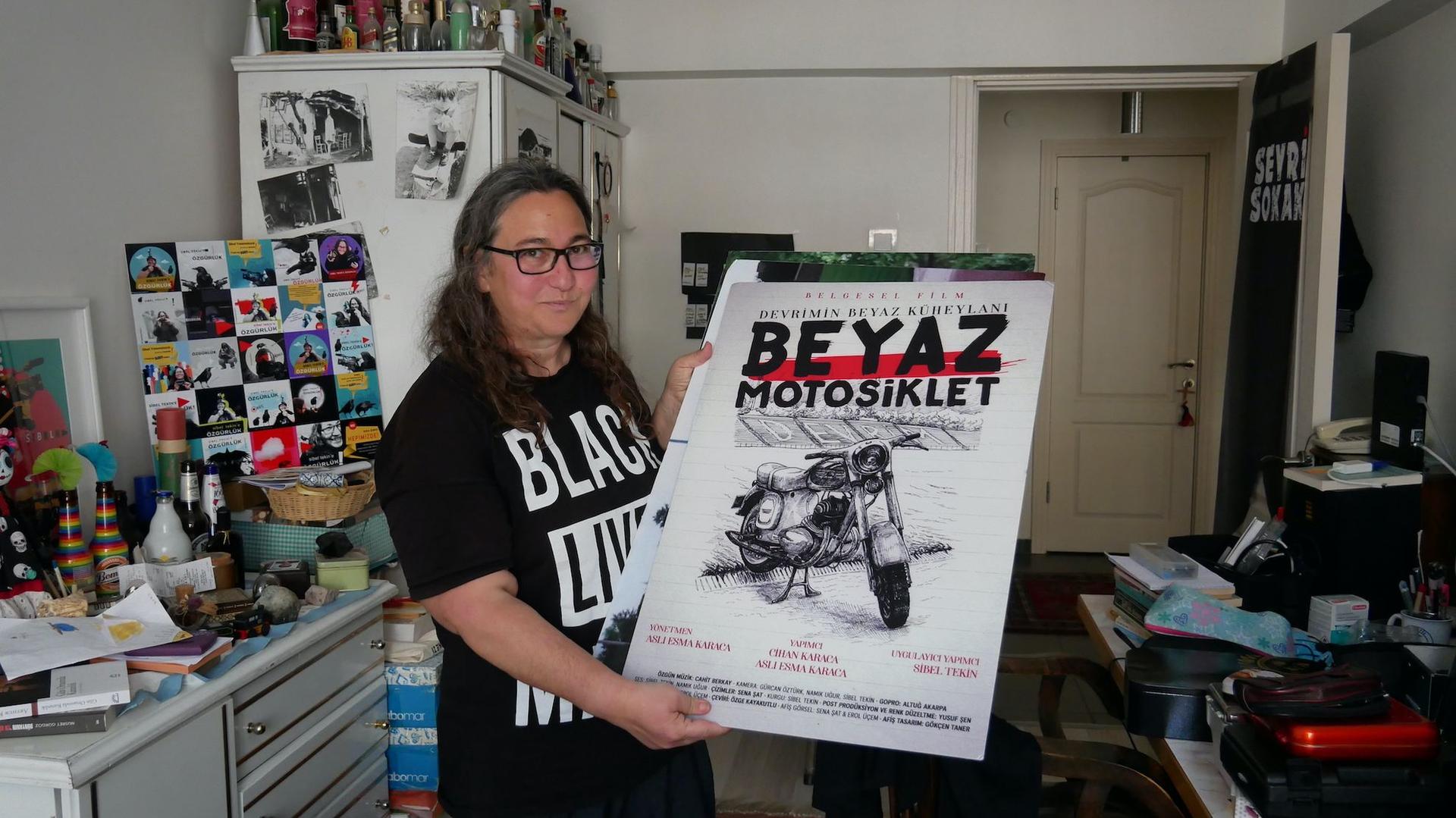
Documentary filmmaker Sibel Tekin in her apartment in Ankara. Photo: Carolina Drüten
Since that summer, Tekin has been called the memory of Ankara. We meet the filmmaker in the flat she shares with her mother. "Black Lives Matter", it says on her T-shirt. "Authoritarianism has always existed, especially against leftists and socialists," Tekin says, "but under Erdogan it has gradually spread to all people in Turkey." To this day, the authorities do not allow demonstrations in Istanbul's Taksim Square, which is bordered by the embattled park.
One can read Erdogan's extreme reaction to criticism as fear of being overthrown. He smells enemies everywhere. Anyone who is not for him is against him. This was already apparent in 2008, when the ruling AKP was almost banned. Erdogan had demanded that the headscarf be allowed as a religious and political symbol at universities. This earned him the accusation of going against the secular order of the state. It lacked only one judge's vote in the eleven-member panel of the Constitutional Court.
Erdogan realised: To stay in power, he would have to overturn the system. Step by step, he ousted the old Kemalist elite from the state apparatus and disempowered the army, which traditionally sees itself as the guardian of the constitution. In the sense of democratic reforms, institutions with a control function should have taken its place. But this did not happen. Instead, Erdogan sought to expand his own power.
"Democracy is only the train we are getting on until we reach our destination," he had said in the 90s.
The biggest rupture came after the failed coup in July 2016, with renegade soldiers using tanks and fighter jets to fire even on civilians who got in their way. Erdogan himself narrowly escaped an assassination attempt.
The coup d'état was crushed - and the president set about what he called "cleansing". He sees the US-based Islamic preacher Fethullah Gülen as the mastermind behind the coup. The latter denies this. Tens of thousands of suspected coup plotters and Gülen supporters were arrested, and more than 100,000 state employees were dismissed. In addition, Erdogan had many of his political opponents and critics imprisoned. In 2017, he had the people vote on a presidential system that gave him far-reaching powers. The Turkish rule of law is a shadow of its former self.
Erdogan has never been more powerful.
In December last year, Tekin was asleep after an exhausting day of filming for a documentary, when the doorbell rang at two in the morning. The police were outside. The officers searched her room and took Tekin away, allegedly because she had filmed security forces "for spying purposes". She was sent to prison and spent three weeks in solitary confinement.
A month and a half later, a court lifted the arrest warrant. She was allowed to leave prison, but has not been allowed to leave Turkey since: the authorities have imposed an exit ban on her.
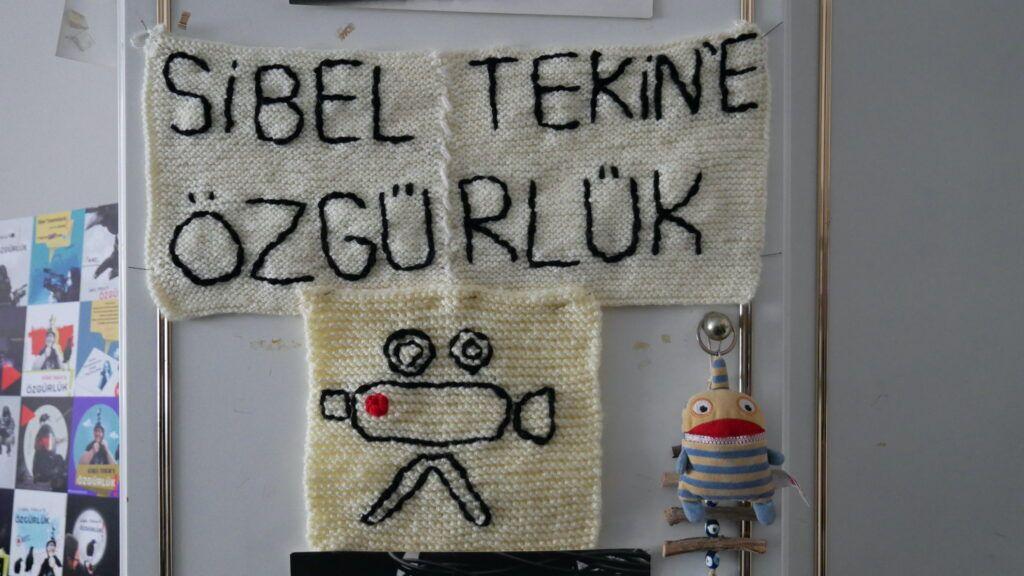
Snapshot from Sibel Tekin's apartment. Photo: Carolina Drüten
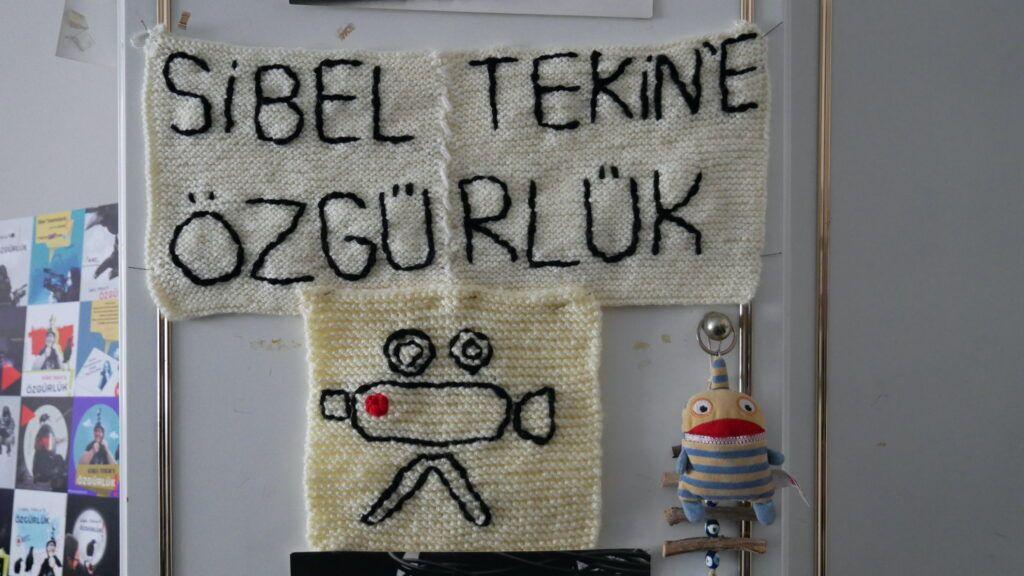
Snapshot from Sibel Tekin's apartment. Photo: Carolina Drüten
The more Erdogan tightened the noose at home, the more aggressive his foreign policy became. Relations with the West deteriorated. Turkey's Western ties once seemed self-evident; it has been a member of Nato since the 1950s. Its strategic location between Europe and Asia makes it a key country.
But for some years now Erdogan has been pursuing a seesaw policy. He accuses the West of only half-heartedly condemning the attempted coup in Turkey. Russian President Vladimir Putin knew how to use this to his advantage. A few weeks after the attempted coup, he invited Erdogan to St. Petersburg. A year later, Ankara announced a deal on the Russian S-400 air defence system.
Washington feared that the Russians could obtain information on American jets - and excluded Turkey from the F-35 fighter programme. In the Russian war of aggression against Ukraine, Turkey did deliver combat drones to Kiev early on and closed the only access to the Black Sea for warships. At the same time, Erdogan expanded trade with Moscow and, together with Putin, is planning a hub for Russian gas in Turkey.
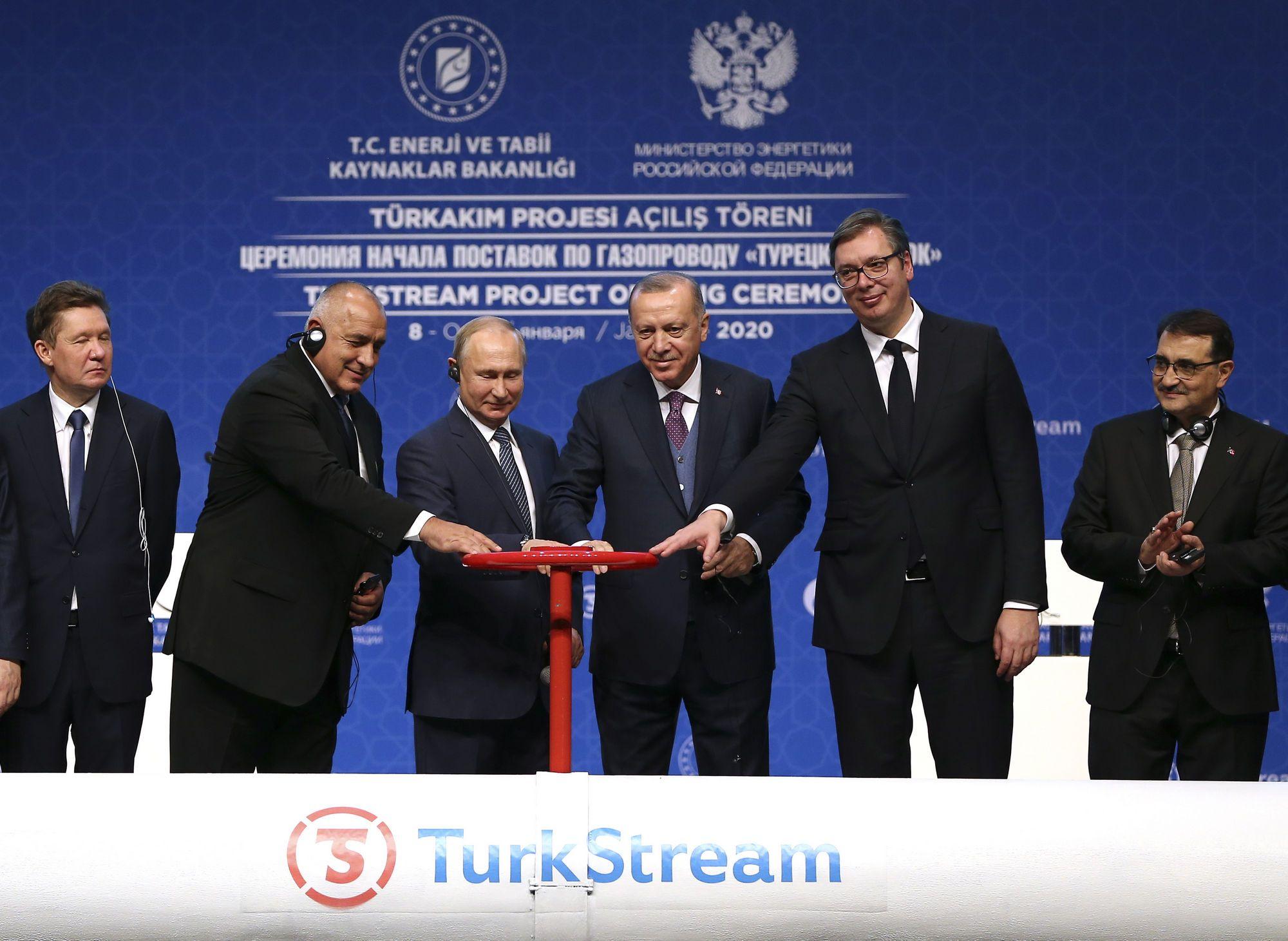
ISTANBUL, TURKEY - JANUARY 8: President of Turkey Recep Tayyip Erdogan (3rd R) and his Russian counterpart Vladimir Putin (3rd L) along with Serbian President Aleksandar Vucic (2nd R) and Bulgarian Prime Minister Boyko Borisov (2nd L) open the valve during the opening ceremony of TurkStream natural gas pipeline project, at Halic Congress Center in Istanbul, Turkey on January 08, 2020. Photo: Anadolu Agency
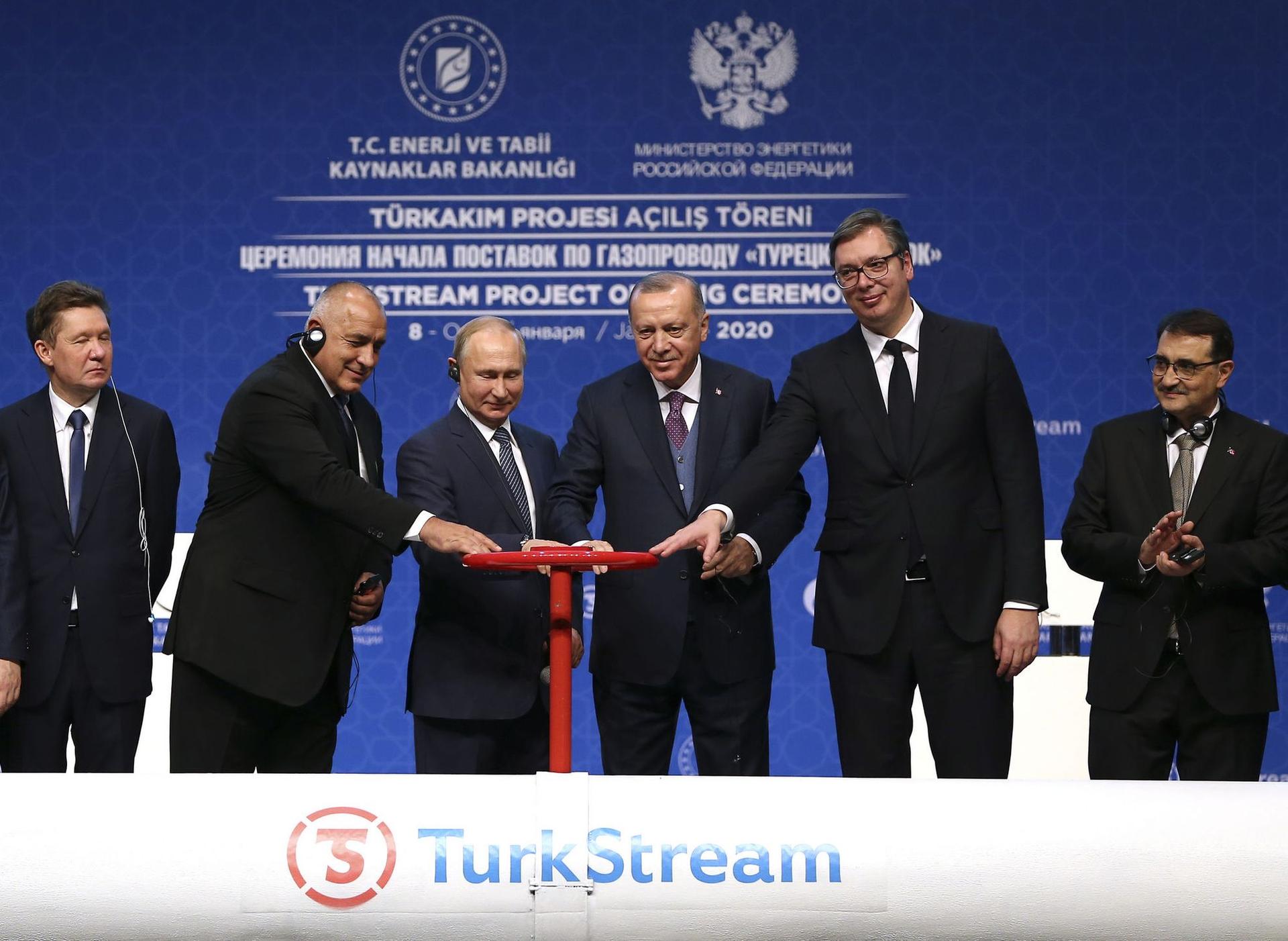
ISTANBUL, TURKEY - JANUARY 8: President of Turkey Recep Tayyip Erdogan (3rd R) and his Russian counterpart Vladimir Putin (3rd L) along with Serbian President Aleksandar Vucic (2nd R) and Bulgarian Prime Minister Boyko Borisov (2nd L) open the valve during the opening ceremony of TurkStream natural gas pipeline project, at Halic Congress Center in Istanbul, Turkey on January 08, 2020. Photo: Anadolu Agency
When Sweden and Finland wanted to become members of Nato in the face of the threat from Moscow, Erdogan blocked the process for months.
Erdogan is unconcerned about the West's competition with illiberal powers. He tends to prioritize his own interests over everything else, as seen in his decision to deploy ground troops to northern Syria to combat Kurdish militias in 2019. It's worth noting that these militias are also close allies of the USA in the fight against the terrorist group IS.
Similarly, in the territorial dispute with Greece, tensions escalated to the point of nearly triggering an armed conflict in the eastern Mediterranean during the summer of 2020.
Erdogan's primary focus is to maintain his grip on power, and that very power is all but certain. A coalition of six opposition parties has united in an attempt to seize power from him, and polls suggest a tightly contested race ahead.
Chapter 3: All or nothing
The earthquakes in February 2023 have left a national trauma. To what extent they hurt Erdogan politically remains to be seen. Many people are upset because the government had tolerated construction defects. Others say the quakes were divine fate.
But the mood was already bad before the disaster. Last year, inflation climbed to over 80 percent at times. Onions, potatoes and bread became expensive.
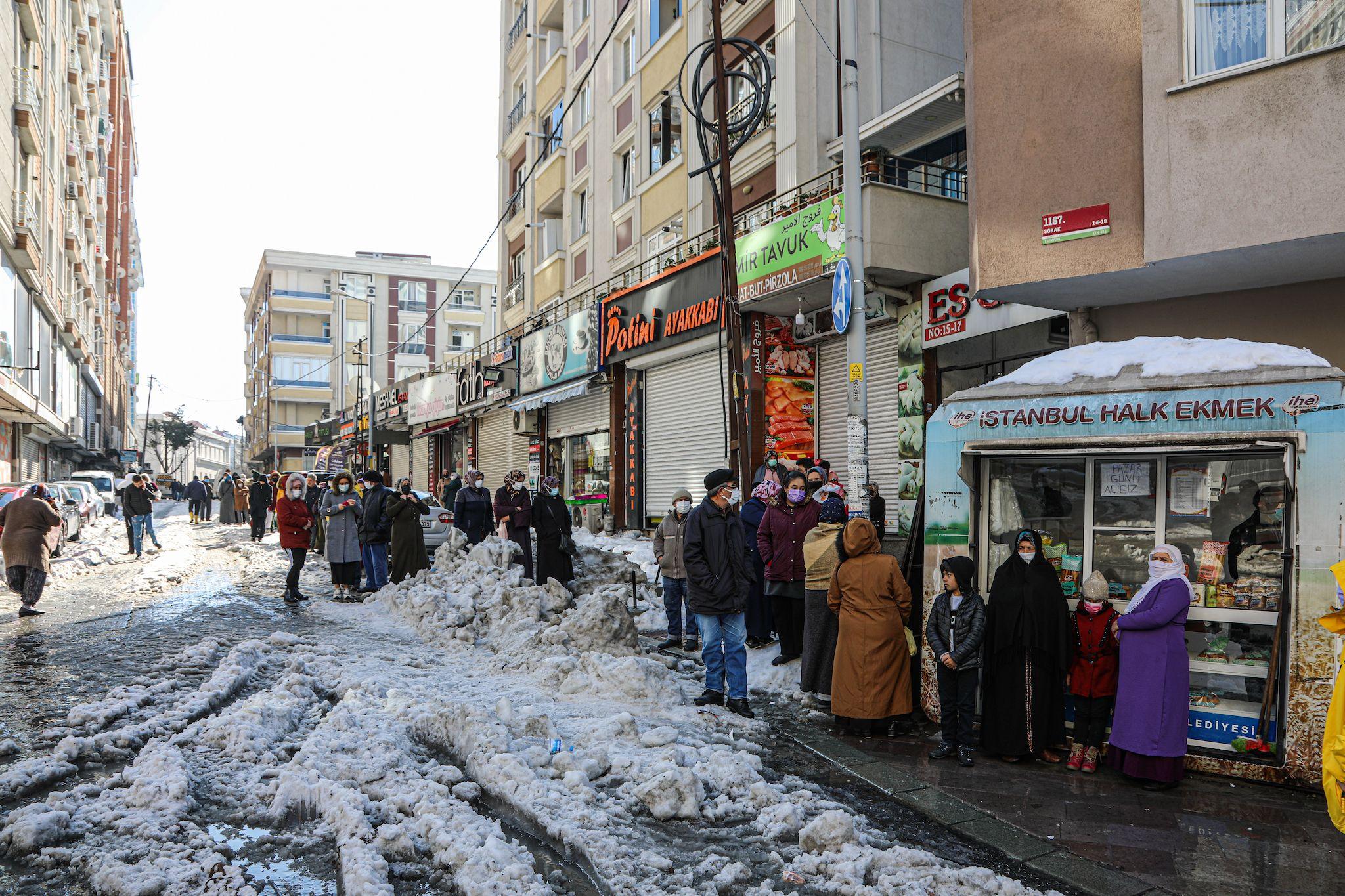
The queue for bread at a subsidised price by the city hall in Istanbul on 1 February 2022. Photo: Murat Bay
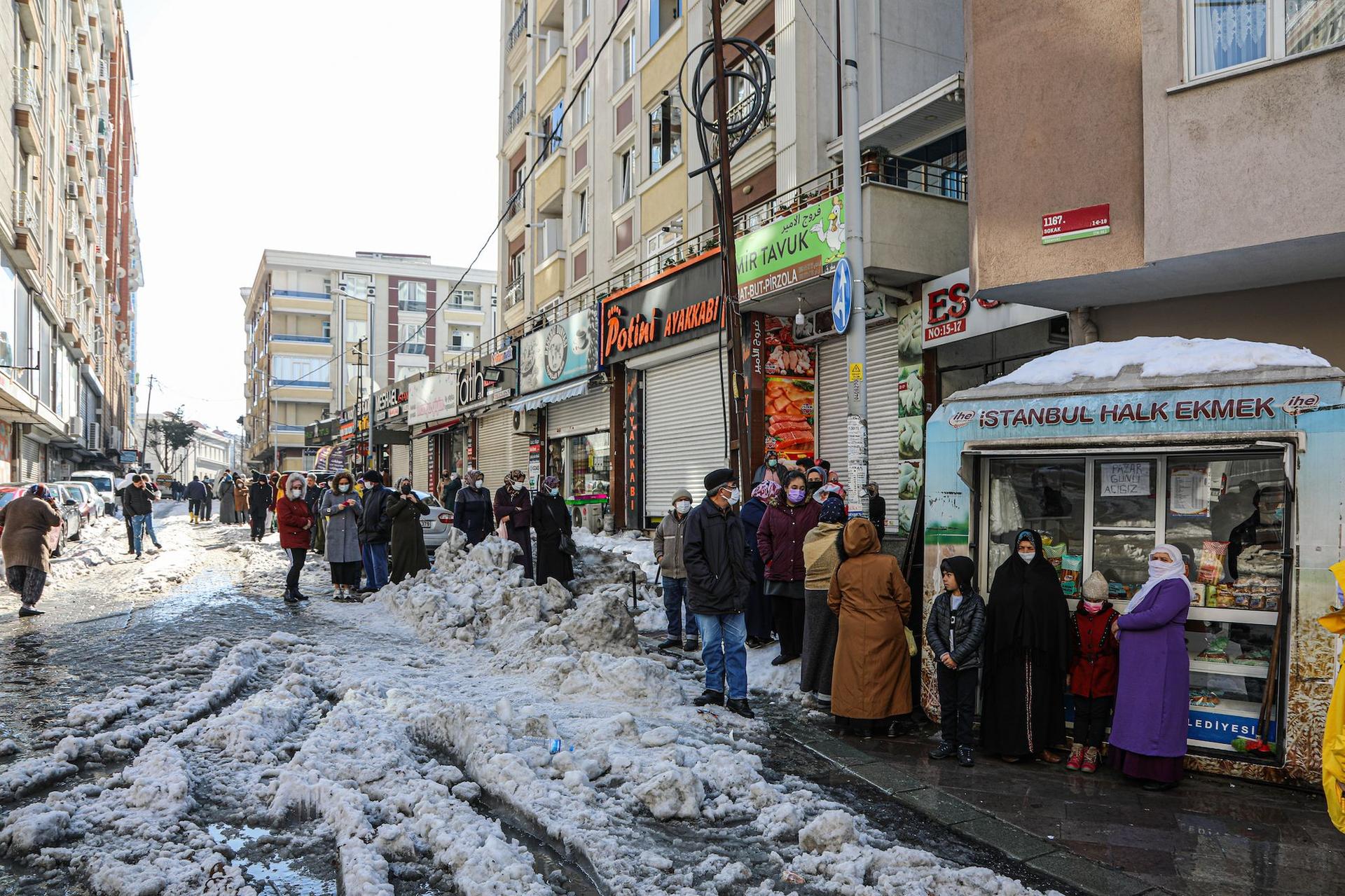
The queue for bread at a subsidised price by the city hall in Istanbul on 1 February 2022. Photo: Murat Bay
It doesn't help that the president raised the minimum wage three times. Erdogan's economic policy once made him successful, now it could bring him down. Instead of raising the key interest rate, a proven recipe against currency devaluation, he fired every central bank chief who opposed his low interest rate policy. Six opposition parties want to turn the tide and have named a common candidate, Kemal Kilicdaroglu of the Kemalist CHP. The alliance promises a return to traditional economic policies, wants to abolish the presidential system and strengthen democracy. The parties embody different ideologies; they are united by the desire to get rid of Erdogan.
It is questionable whether Erdogan would be willing to give up power in case of defeat. Last week, his interior minister spoke of a "political coup attempt by the West" in connection with the election. Two events in Turkey's recent history can shed light on the prospects for a democratic transition of power.
The first is the parliamentary election in June 2015, when Erdogan's party lost its absolute majority because the pro-Kurdish HDP overcame the threshold and entered parliament. A coalition government should have been formed within 45 days. Instead, the peace process between Ankara and the Kurdish terrorist organisation PKK failed. Erdogan himself had once initiated it. Armed Kurdish fighters entrenched themselves in residential areas in the south-east of the country, and the Turkish army used tanks and artillery against them. Entire districts were razed to the ground, and in some cases curfews lasted for months. At the same time, Kurdish militants carried out attacks in western Turkey.
In the midst of the crisis, Erdogan had the elections repeated. The rally-around-the-flag effect came to pass, and the AKP improved its result by 8.6 percentage points. A year later, the immunity of almost all HDP deputies was lifted. Erdogan calls them the parliamentary arm of the terrorists. Currently, proceedings are underway to ban the party. Observers classify it as politically motivated.
The second event is the 2019 mayoral elections. In Istanbul, Ekrem Imamoglu of the opposition CHP ran against an Erdogan loyalist - and won. The president, however, did not want to recognise the result. After all, it was Erdogan himself who had once said: "Whoever wins Istanbul, wins Turkey." Because of alleged irregularities, he had the vote held again.
"Erdogan fought us," Imamoglu recalls in his office at Istanbul City Hall. "Before the election was rerun, he held rallies, he was in every district of Istanbul." It didn't help. Imamoglu actually increased his lead by over 800,000 votes. This, he says today, was the first sign that the Erdogan era was coming to an end.
Ten weeks after the devastating earthquakes in southeastern Turkey, most of the rubble in Adiyaman has been cleared.
A market has reopened in an alleyway. But nothing is as it was before.
More than 50,000 people have died, according to official figures at the beginning of February.
Ali, who does not want his full name to appear in the newspaper, has lost his son, daughter-in-law and two grandchildren. He is chatting with a friend at the corner of a house. Many buildings are in danger of collapse, they will have to be demolished.
"The help came from the citizens themselves. Not from the state," Ali says, rolling a cigarette. He says that the rescuers arrived late in Adiyaman.
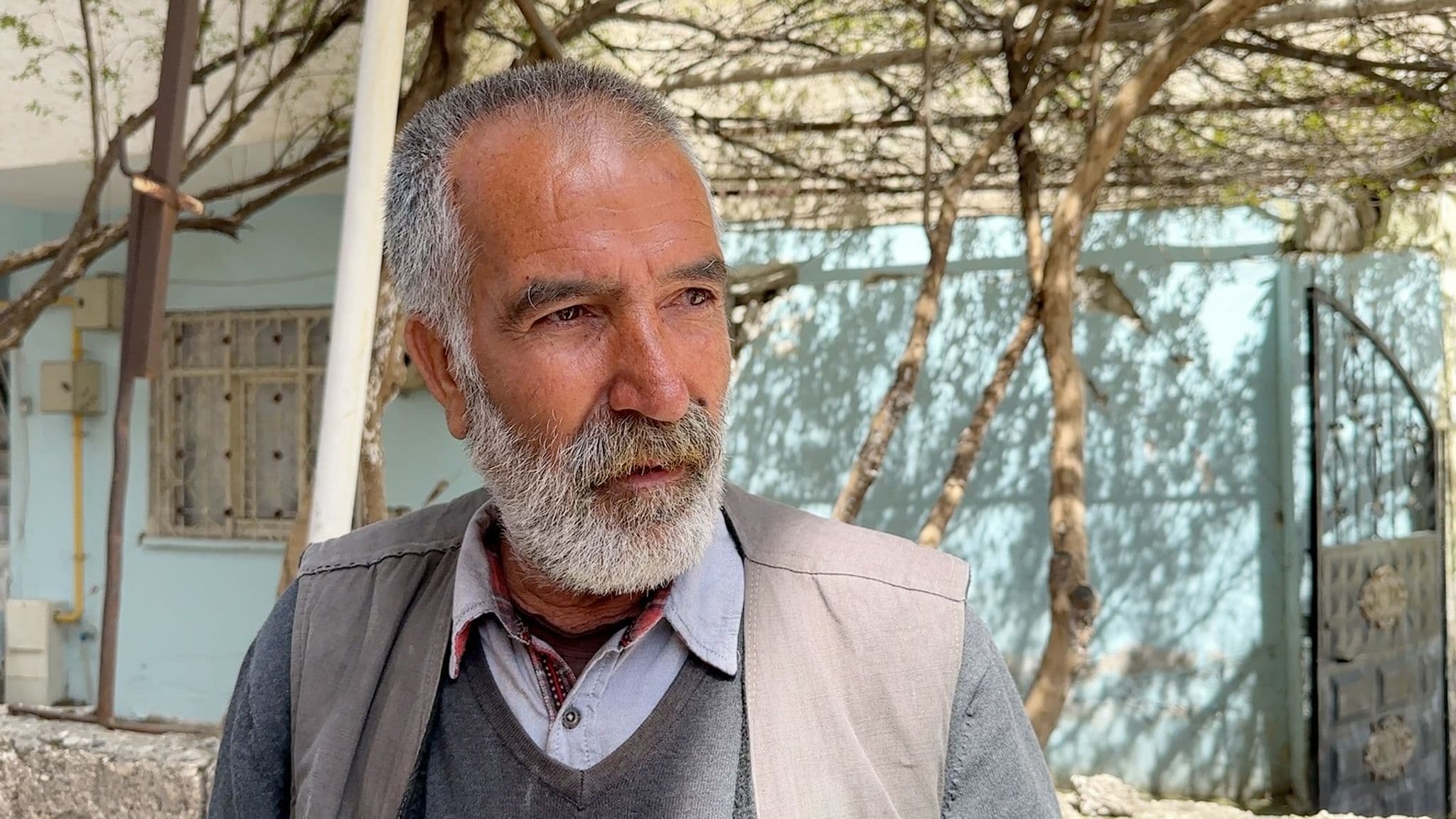
Ali, from Adiyaman, lost his son, daughter-in-law and two grandchildren in the earthquake on 6 February 2023. Photo: Carolina Drüten
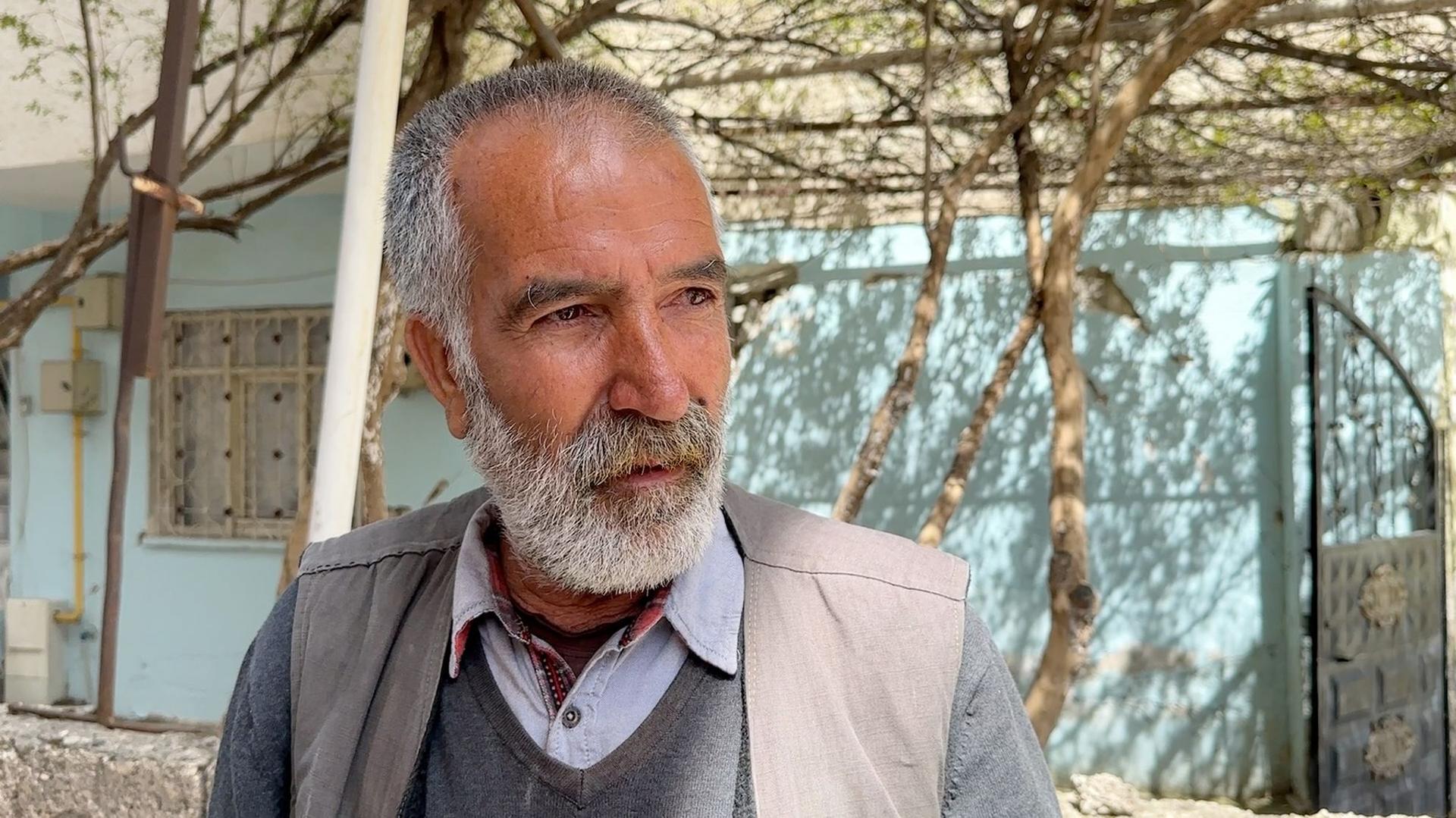
Ali, from Adiyaman, lost his son, daughter-in-law and two grandchildren in the earthquake on 6 February 2023. Photo: Carolina Drüten
"So far I have not said anything bad about those who vote for the AKP," says the 64-year-old. The collar of his shirt is worn. "But those who still vote for them today, I will never forgive them."
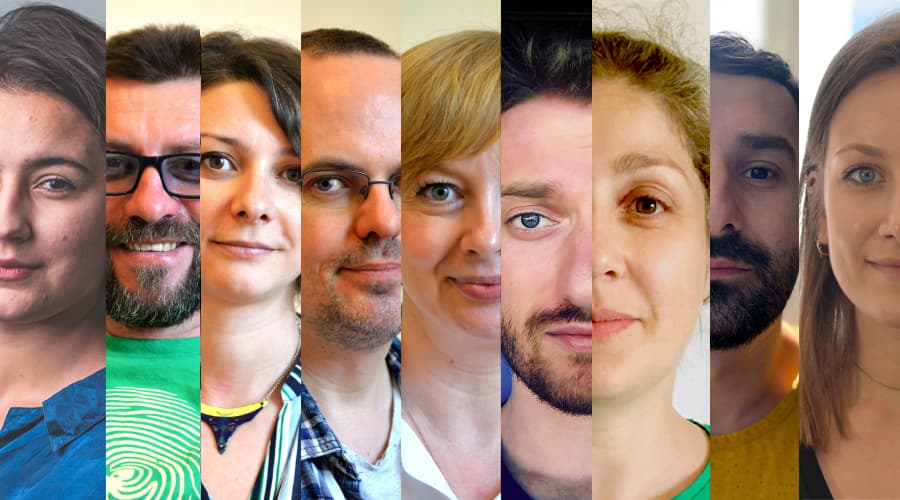
Avem nevoie de ajutorul tău!
Mulți ne citesc, puțini ne susțin. Asta e realitatea. Dar jurnalismul independent și de serviciu public nu se face cu aer, nici cu încurajări, și mai ales nici cu bani de la partide, politicieni sau industriile care creează dependență. Se face, în primul rând, cu bani de la cititori, adică de cei care sunt informați corect, cu mari eforturi, de puținii jurnaliști corecți care au mai rămas în România.
De aceea, este vital pentru noi să fim susținuți de cititorii noștri.
Dacă ne susții cu o sumă mică pe lună sau prin redirecționarea a 3.5% din impozitul tău pe venit, noi vom putea să-ți oferim în continuare jurnalism independent, onest, care merge în profunzime, să ne continuăm lupta contra corupției, plagiatelor, dezinformării, poluării, să facem reportaje imersive despre România reală și să scriem despre oamenii care o transformă în bine. Să dăm zgomotul la o parte și să-ți arătăm ce merită cu adevărat știut din ce se întâmplă în jur.
Ne poți ajuta chiar acum. Orice sumă contează, dar faptul că devii și rămâi abonat PressOne face toată diferența. Poți folosi direct caseta de mai jos sau accesa pagina Susține pentru alte modalități în care ne poți sprijini.
Vrei să ne ajuți? Orice sumă contează.
Share this



